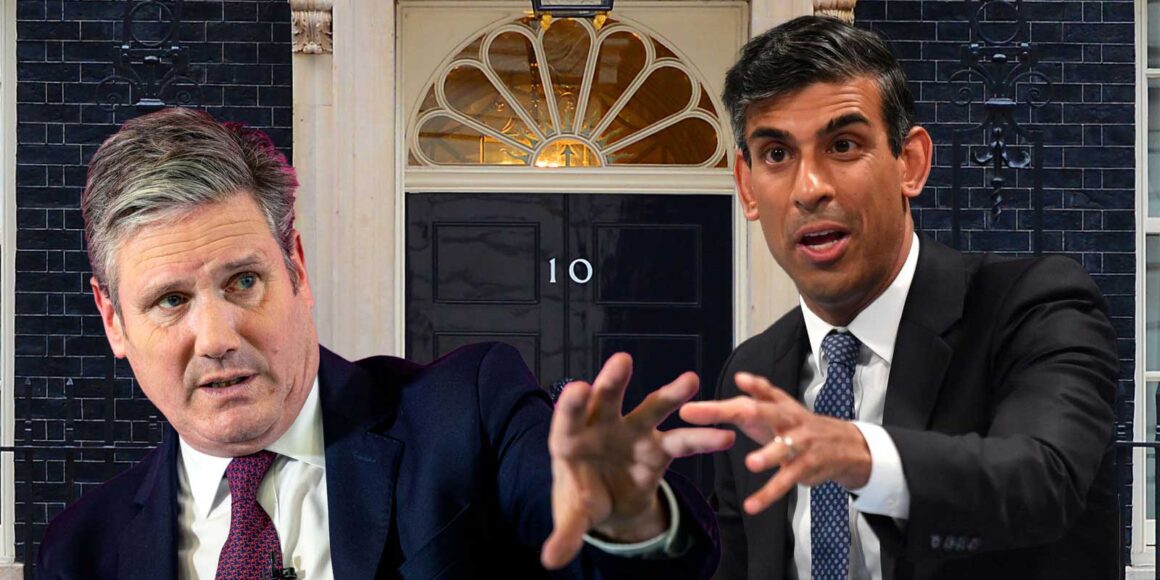

By Alex Rutherford
WITH A new winter of discontent, rising prices, a growing strike wave and scandals ranging from tax penalties to kidnapped child refugees, it is no wonder that many commentators are predicting that Rishi Sunak’s career as Prime Minister may be a short one.
From the perspective of the working class, the shorter his tenure the better. Sunak intends to pass some of the most restrictive anti-union laws in the world, while imposing a new round of austerity on a working class that is watching its purchasing power decline with each passing day.
After a brief honeymoon period following the short-lived Liz Truss premiership, Sunak has sunk in opinion polls (down to 26% satisfaction rating, 11 points adrift of Starmer). Scandals continue to wrack the Tories, most recently exposure of party chair Nadhim Zahawi as a tax avoider.
Even significant parts of the bourgeoisie are growing tired of Tory rule. In a damning interview in the Financial Times, employers’ federation CBI chief Tony Danker branded Sunak and Jeremy Hunt’s plans ‘anti-growth policy’. Other business leaders complain that there is no policy.
The IMF’s verdict is that the UK will be the only major economy to shrink in 2023 and the slowest to recover: 0.6% negative growth this year and a paltry 0.9% growth in the following two. Even Russia’s outlook is better than this.
Danker condemned the ‘chaos’ of planning to sunset the majority of EU legislation in the retained EU law (revocaction and reform) bill on 31 December 2023: ‘Will we really erode maternity and paternity regulation or health & safety standards?’ This will have serious ramifications for workers’ rights.
It is not surprising that for many, the solution to this problem is a general election, leading to a Labour government. However, a closer look at the Labour Party under Keir Starmer reveals that this is an illusion, and a potentially dangerous one.
Labour
Following the expulsions and exodus of socialist and anti-Zionist activists from Labour’s ranks, Starmer promptly abandoned the so-called ‘ten pledges’ he had been elected on. These included public ownership of public services, defending the rights of migrants, and strengthening workers’ rights and the trade unions.
Since that time, Starmer has refused to support workers on strike and was hesitant to commit even to repealing the Tories’ latest anti-strike Bill, never mind repealing all of the previous anti-union laws. He has banned shadow cabinet members from even appearing on picket lines.
His commitment to nationalisation in the public sector has vanished and in its place has appeared… privatisation. Nowhere is this clearer than in the NHS. Of course, Starmer claimed he is ‘not talking about privatising the NHS’, merely of using the private sector more ‘effectively’.
Shadow health secretary Wes Streeting has, however, made clear this means massively increasing the number of operations the NHS pays private healthcare companies and hospitals to perform. Rather than grow the NHS to fulfil need, Labour will grow the private sector and reduce what the NHS can do.
Starmer has also stressed that Labour ‘will not open the big government cheque book’, despite the collapse of our public services. Streeting and Co. have already declared Labour will not raise public sector workers’ pay in line with inflation.
Chancellor Jeremy Hunt has promised £35 billion of spending cuts after the next election. Will Starmer and Rachel Reeves, like Blair and Brown before them, pledge to ‘honour’ these cuts? To ask the question is surely to answer it.
Labour has a 20% lead over the Tories, seemingly vindicating Starmer’s strategy of letting the Tories lose the election while convincing broadcasters and the press that Labour are just as subservient to British imperialism as the Tories, without the inconvenience of being beholden to a pro-Brexit faction on the backbenches.
However, for the party to be seen as a ‘safe pair of hands’ by British capitalists and not a representative of the interests of the working class, Stammer must ensure the left wing of the Labour is excluded from political power.
Build the resistance
All this means that for the broad vanguard of socialist and trade union militants their repugnance for Starmer and his ‘Tory’ policies is as strong as ever. But this hostility has, as yet, no organised focus, and certainly no leadership. To the overwhelming majority of those suffering the cost-of-living crisis the Labour Party remains the only realistic, i.e. electoral, alternative government to the Tories.
Although politically oriented toward the bourgeoisie, the organic links of the working class to the Labour Party continue to exist. This includes union representatives constituting 13 out of 33 members of the National Executive and the Trade Union and Labour Party Liaison Organisation and 50 per cent of the delegates to the Party Conference. But by long-standing convention the trade unions—especially their general secretaries—refrain from public interference in the party.
It is likely that sooner or later, even the more publicly critical union leaders will get in line behind Starmer, and this will include putting the brakes on the industrial struggle to avoid rocking Labour’s boat. Before this happens, we must push the union leaders to commit to supporting left-wing economic, social and political measures, as well as direct action.
In this year’s round of conferences, the unions must adopt policies on pay, the anti-union laws, social spending, democratic rights, immigration and the climate, and must campaign on these issues among their members and the wider public.
Above all, overt demands must be made of the Labour Party. The unions should make clear that if Labour does not accept their demands, funding will be frozen or cut. This could include insisting Labour candidates endorse union policy and refusing to campaign for those who will not. It could ultimately create the basis for a new workers’ party, rooted in the class struggle.